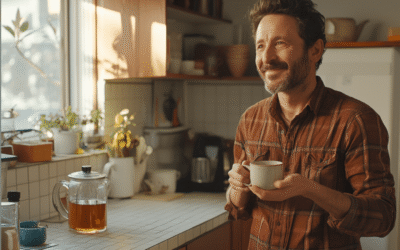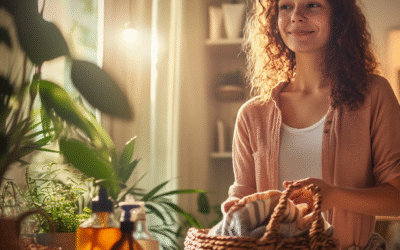For so many of us, health has been packaged as an all-or-nothing pursuit.
You’re either all in on a strict plan, or you’ve “fallen off.”
You’re eating perfectly “clean,” or you’re “cheating.”
You’re motivated and tracking everything, or you’re avoiding it entirely.
If this cycle sounds familiar, you’re not alone.
I see it often in my work with clients, and I’ve lived it too.
The truth is, extremes don’t support well-being. They create stress. Confusion. Guilt. And they teach us to ignore the most important voice in our health journey—our own.
Why All-or-Nothing Approaches Feel So Appealing
There’s a reason we get hooked on rigid plans.
They’re clear. They feel safe.
They promise certainty in a messy, overwhelming world.
When you’re struggling or feeling out of control, a set of strict rules can feel like relief.
But those rules don’t know you.
They don’t account for your changing needs, your emotional world, or the realities of your day-to-day life.
They don’t teach you to listen.
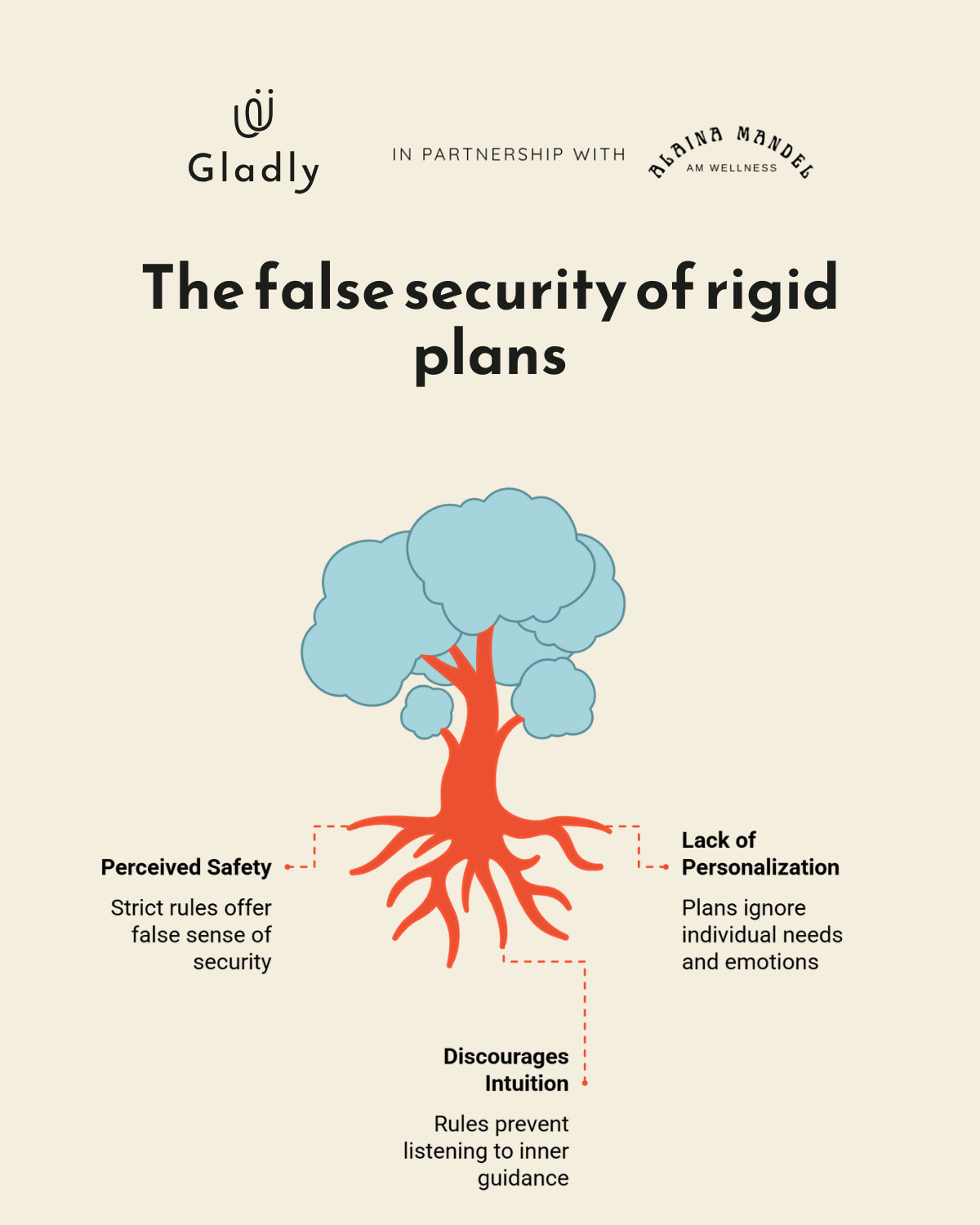
The Real Cost of Extremes
Here’s what often happens with all-or-nothing health plans:
- You start with enthusiasm and strict discipline.
- Life inevitably happens—stress, travel, emotions.
- You “slip” and feel like you failed.
- You swing in the other direction, abandoning all structure.
- Guilt sets in, and you look for the next plan to start over.
This back-and-forth isn’t just tiring. It disconnects you from your body’s signals.
Instead of asking what you need, you ask what you’re “allowed.”
Instead of responding to stress with care, you might restrict harder or give up entirely.
How to Recognize All-or-Nothing Patterns
You might see them if you:
- Label foods as “good” or “bad
- Feel like one meal or day can “ruin” everything
- Restart plans every Monday
- Avoid social events because you can’t control the food
- Feel guilt or shame tied to eating choices
If you recognize yourself here, it doesn’t mean you’ve failed.
It just means the plan failed to respect you as a whole human.
What Sustainable Health Actually Looks Like
Sustainable health is less about perfectly following rules and more about building a relationship with yourself.
It means developing trust. Curiosity. Flexibility.
It invites questions like:
- What feels nourishing?
- What does my body need today?
- How do emotions influence my choices?
- How can I respond to stress without punishment?
This approach is messier. Slower.
But it’s what actually lasts.
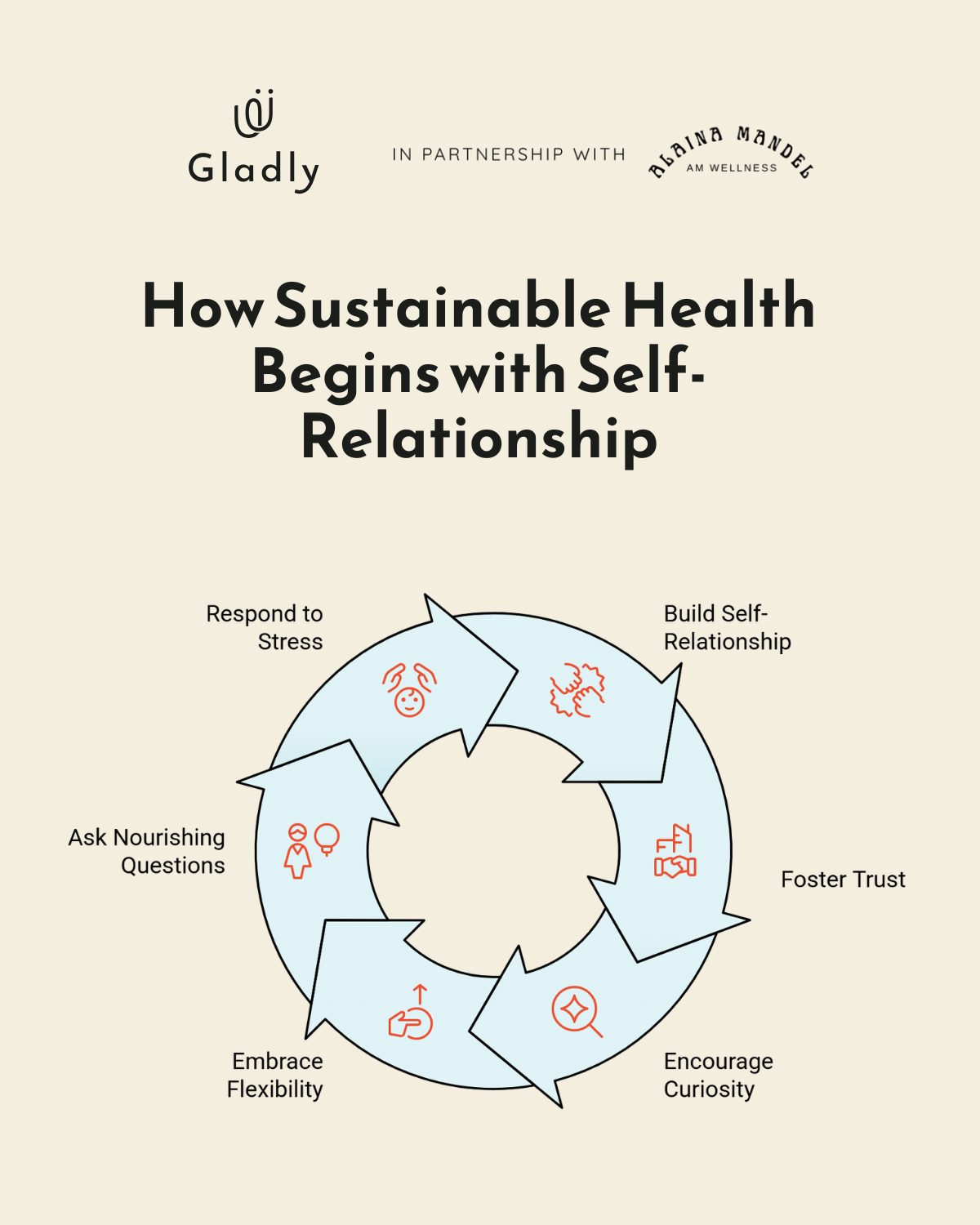
Small Ways to Shift from Extremes to Balance
You don’t need to overhaul everything overnight.
Here are gentle starting points:
1. Neutral Language About Food
Try letting go of “good” or “bad.”
Notice how different foods make you feel instead of labeling them.
2. Tune In to Hunger and Fullness
Eat slowly enough to notice.
Can you tell when you’re satisfied?
3. Allow Flexibility
Build in options. Plans that can flex with real life are the ones you’ll actually keep.
4. Pause Before Reacting
Notice the urge to compensate after eating more.
Can you stay with that discomfort without immediately “fixing” it?
5. Explore Emotional Layers
Sometimes eating patterns aren’t about hunger at all.
Stress, boredom, loneliness, these deserve compassion, not punishment.
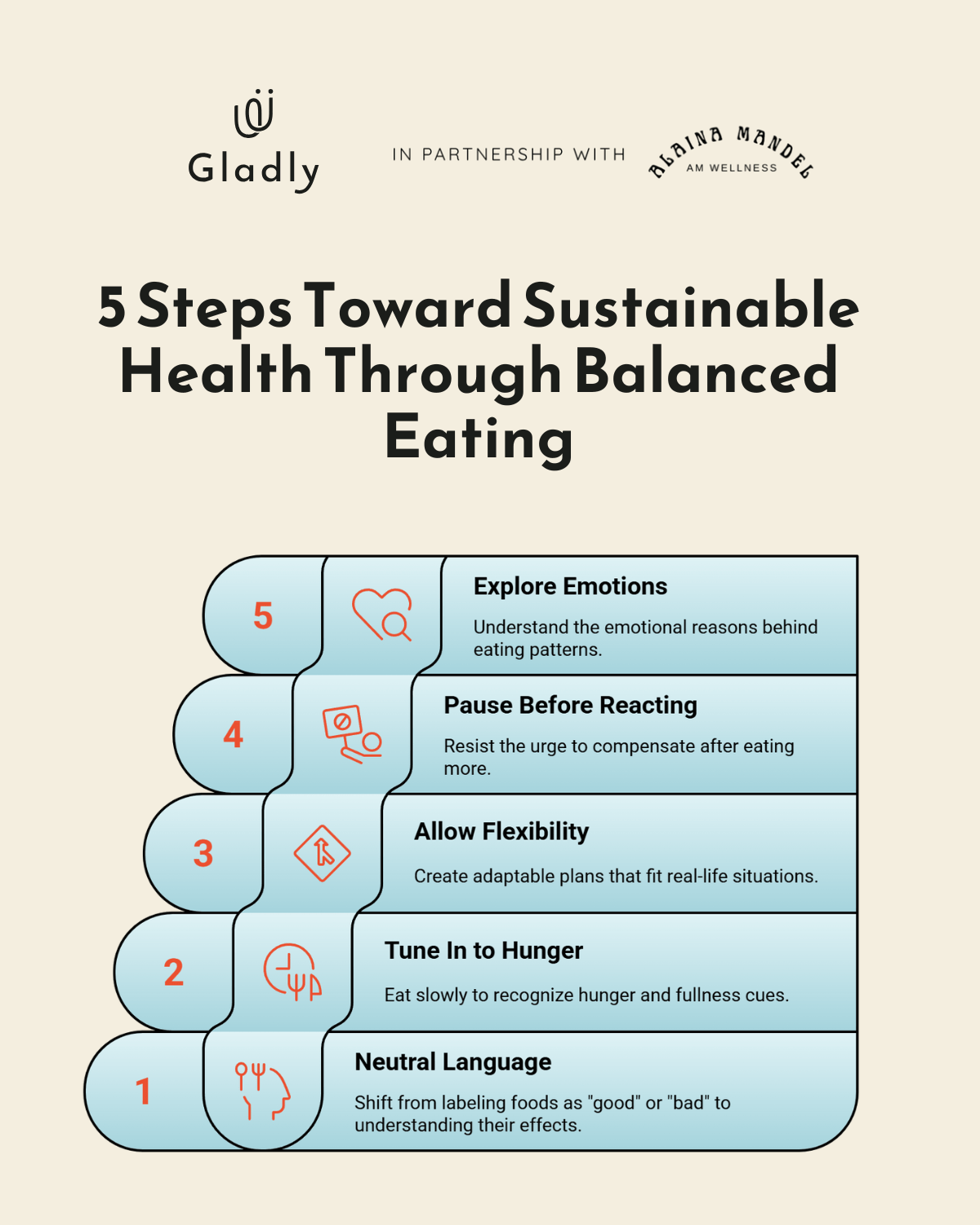
Supporting Your Environment for Sustainable Change
Creating a sustainable approach to health often means changing the environment around you—not just your willpower.
That might look like:
- Simplifying your commitments so you have space to rest
- Creating calming routines at home
- Choosing products that support intention over overwhelm
For example, partners in the Gladly community offer products that can help make small shifts easier:
Comfrt makes soothing, weighted clothing and accessories that can remind you to slow down and check in with yourself on a stressful day.
Andar creates beautifully simple, well-crafted essentials to help you declutter and focus on what really matters.
Aloha Protein Bars are made with thoughtfully sourced ingredients, a simple way to add balanced nutrition without overcomplicating meals or snacks.
The Hypochlorous Company provides a non-toxic, organic way to care for your environment, removing harmful chemicals that add stress to your body and your space.
These aren’t solutions to “fix” you.
They’re tools that can help create an environment where you can listen, respond, and choose what feels aligned.
Bringing It All Together
All-or-nothing diets promise certainty but deliver disconnection.
They don’t help you know yourself better.
They don’t flex when life does.
They don’t teach you to trust your body.
Sustainable health is about listening.
It’s about noticing.
It’s about choosing what supports you, even when it doesn’t look perfect.
Because your health isn’t a performance.
It’s a relationship.
And you deserve one that lasts.






